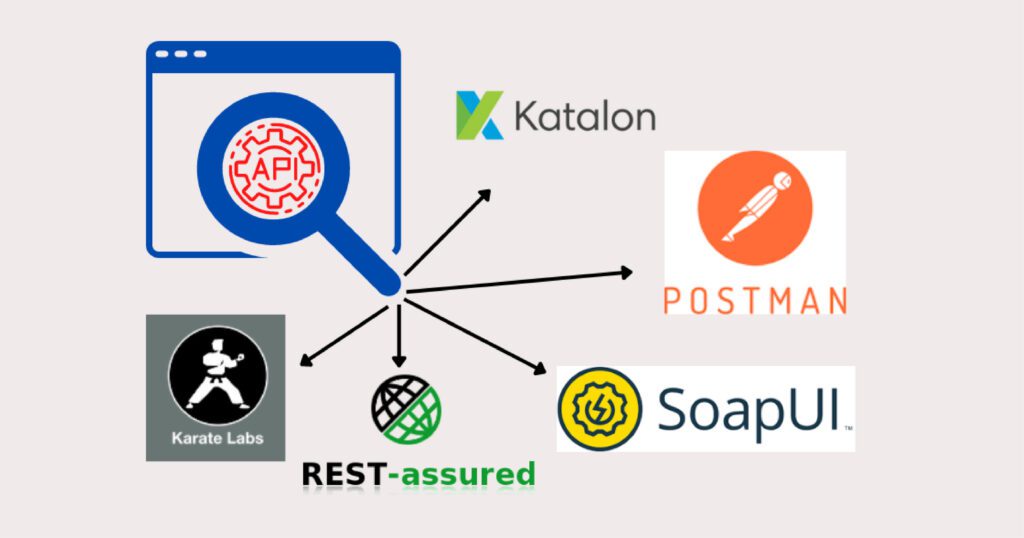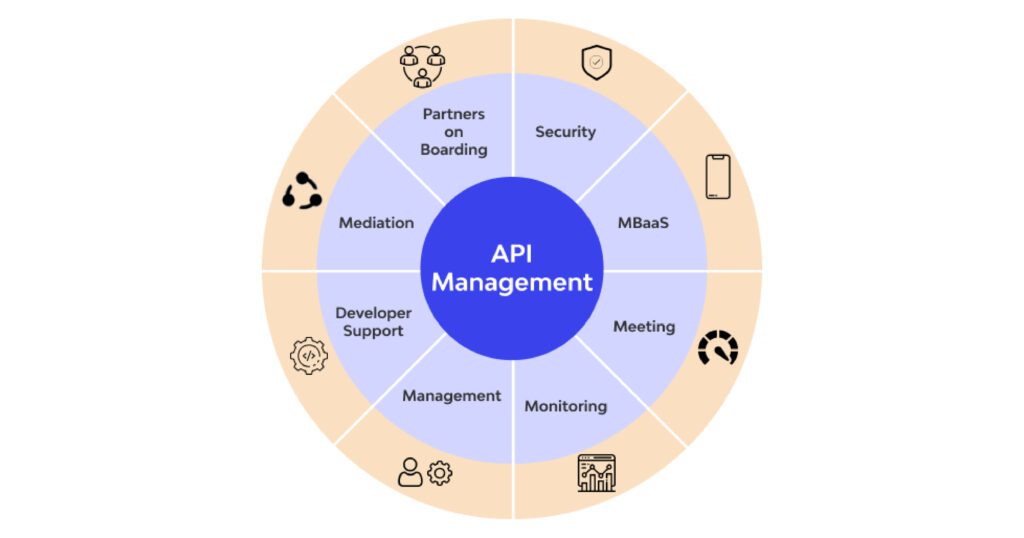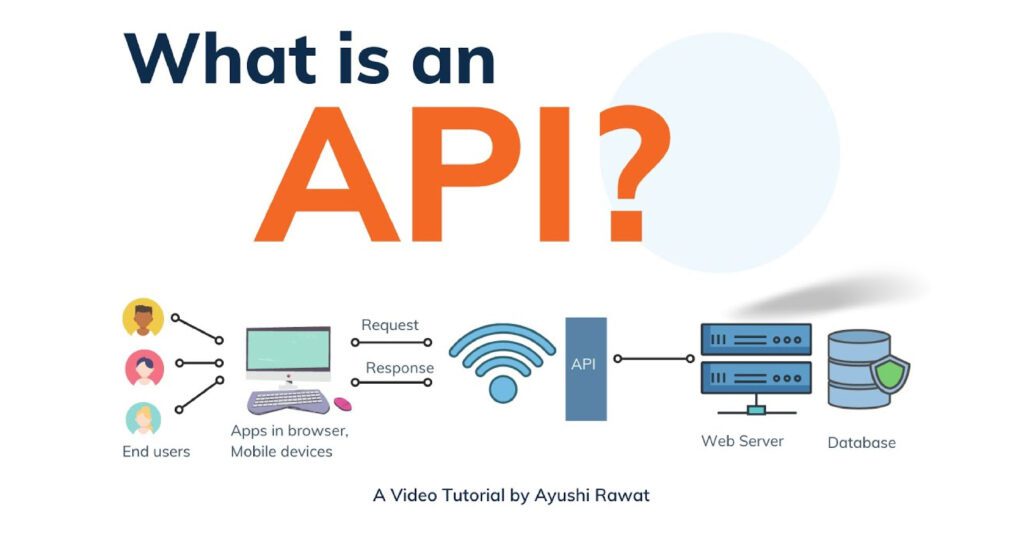Introduction
API testing is a critical aspect of modern software development, ensuring that different components, services, and applications communicate and collaborate seamlessly. With the rise of web services, mobile applications, and cloud-based solutions, the importance of API testing has become more pronounced. API testing involves systematically evaluating APIs to ensure they meet predefined criteria of functionality, performance, reliability, and security. This meticulous scrutiny is essential as even a minor glitch in API behavior can lead to cascading issues, potentially affecting the entire software ecosystem. API testing plays a pivotal role in maintaining high-quality code and focuses exclusively on interfaces, endpoints, and data exchanges between different software systems. This comprehensive guide aims to equip readers with a thorough preparation for API testing interviews in 2024, providing a combination of deep understanding, practical knowledge, and confidence. The guide includes a list of the top 20 API testing interview questions, each accompanied by detailed answers and insightful explanations. In an industry where technological advancements occur at breakneck speed, staying ahead of the curve is paramount. This guide offers a curated selection of API testing interview questions reflecting the latest trends, best practices, and emerging technologies in API testing, designed to assist in interview preparation and deepen understanding of fundamental concepts and methodologies in 2024. Topics covered include RESTful APIs, authentication mechanisms, performance testing, and security protocols. By the end of this guide, readers will be well-equipped to tackle API testing interviews with confidence and possess a deeper appreciation for the pivotal role API testing plays in shaping the robustness and reliability of modern software applications.
Section 1: Understanding API Testing
Define API testing and its significance.
This is one of the basic API testing interview questions that sets the ground for the rest of the interview. API testing is a crucial software quality assurance measure that assesses the functionality, performance, security, and reliability of Application Programming Interfaces (APIs). APIs act as intermediaries for communication between software systems, defining methods and protocols for data exchange between components. A well-tested API is essential for software stability and reliability, as even minor errors can lead to major malfunctions. API testing helps identify and rectify inconsistencies in API handling, evaluates edge cases, error scenarios, and stress conditions, and maintains backward compatibility. By rigorously testing APIs, developers and QA professionals can identify potential issues, strengthen security measures, and enhance the software application's robustness.
The difference between API testing and other types of testing.
The next on our API testing interview questions list is this. API testing is a specialized discipline in software testing that focuses on Application Programming Interfaces (APIs). It differs from other testing methodologies by its scope, level of abstraction, and focus on interface-level interactions. API testing is more concerned with the interface-level interactions between various software systems than unit testing, which looks at individual code components. It operates at a higher level of abstraction, assessing the external behavior of software components. Through direct interaction with underlying API endpoints, API testing circumvents the user interface and facilitates a more focused assessment of functionality and data exchange. It is essential for testing integrations and interactions with third-party services or systems, ensuring seamless interoperability.
Brief overview of tools used in API testing.

A good API interview prep involves knowledge of the tools used in API testing. API testing involves using a variety of tools to ensure the reliability and robustness of APIs. SoapUI is the best tool for testing RESTful and SOAP APIs, while Postman is a well-liked tool for sending HTTP requests to APIs. Command-line interfaces for submitting HTTP requests and examining API responses are cURL and Postwoman. Specialized tools like JMeter and LoadRunner are used for performance testing, ensuring optimal performance for APIs serving critical functions. To ensure that APIs are well-documented for seamless integration and collaboration, Swagger and RAML make API documentation and testing easier. These tools cater to different needs and preferences, making the API testing process more efficient and effective.
Section 2: Preparing for the Interview
Discuss the importance of understanding API concepts.

No API testing interview questions is done without this one. API testing interviews require a solid understanding of fundamental concepts like APIs, which act as intermediaries for software components to communicate and interact. It is easier to spot possible problems and vulnerabilities when one is aware of the types, behaviors, and characteristics of APIs. Familiarity with authentication mechanisms, data formats, and HTTP methods is crucial for thorough API testing. A strong grasp of API concepts demonstrates technical proficiency and positions candidates for navigating the intricacies of API testing in 2024 with expertise and finesse.
Tips on how to present your knowledge during an interview.
API testing interview questions like this are frequently asked during interviews, so you can demonstrate your knowledge by using these strategies: ask clarifying questions, stay up to date on trends, communicate clearly, give structured answers, use real-world examples, adopt a problem-solving approach, acknowledge limitations, demonstrate technical proficiency, and show enthusiasm for the subject matter. Speak clearly, arrange your responses logically, and connect your experiences to tasks or circumstances that you have encountered in the real world. Your API testing interviews will go well thanks to this well-rounded presentation that will wow the interviewers.
The mindset required to approach API testing problems.
API testing requires a specific mindset, including attention to detail, critical thinking, a systematic approach, curiosity, adaptability, problem-solving orientation, risk assessment, continuous learning, collaboration, and patience. This is one of the most asked API testing interview questions so you can add more details when you answer. This mindset helps in questioning assumptions and potential risks, identifying root causes, developing effective solutions, prioritizing testing efforts, and fostering continuous learning. Collaboration with developers, testers, and stakeholders is also crucial. Patience and perseverance are also essential qualities in API testing.
Section 3: API Testing Basics
What is an API and why is testing necessary?

APIs are essential for communication and interaction between software systems, enabling seamless integration between components like servers and databases. This is like the basic of basics API testing interview questions. APIs are responsible for handling sensitive information, and testing helps identify and address potential weak points in their performance. It also ensures that APIs operate reliably under various load conditions, ensuring seamless interoperability with other components. API testing also helps ensure compliance with industry standards regarding data security and privacy, safeguarding against potential legal and financial repercussions. Therefore, API testing is a fundamental aspect of software quality assurance, ensuring APIs meet predefined criteria of functionality, performance, reliability, and security.
Explain RESTful APIs vs. SOAP APIs.
Web APIs are designed using two different architectural styles: RESTful APIs and SOAP APIs. RESTful APIs are lightweight and easy to implement, relying on standard HTTP methods and Uniform Resource Identifiers (URIs) for representation. They are known for their scalability and are commonly used in web services and mobile applications. Conversely, SOAP APIs are a protocol that allows structured data to be exchanged in a distributed, decentralized setting. They can function across multiple protocols and use XML as their message format. With a predetermined message structure called the SOAP envelope, they are more formal and inflexible. Enterprise-level applications prefer SOAP APIs because they offer standardized error handling and enhanced security features.
Basic methodologies in API Testing.
API testing interview questions can be formed around this. API testing involves various methodologies to ensure that Application Programming Interfaces (APIs) meet specific criteria of functionality, performance, reliability, and security. Functional testing, unit testing, integration testing, load testing, security testing, stress testing, and border testing are some of these methodologies. Functional Testing verifies that the API functions according to its intended behavior, while Unit Testing assesses individual code components. While load testing measures an API's performance in situations of high traffic, integration testing analyzes the interactions between software components. Vulnerabilities are found and sensitive data is handled securely within the API thanks to security testing. While border testing looks at how the API handles extreme values and edge cases, stress testing looks at how the API performs under harsh circumstances.
Section 4: Intermediate API Testing Concepts (400 words)
(H3) Common HTTP Methods (- GET, POST, PUT, DELETE, etc.)
Since HTTP methods specify the kind of action to be taken on a resource, they are crucial for API testing. The HTTP methods GET, POST, PUT, DELETE, PATCH, OPTIONS, and HEAD are frequently used. While POST sends data for processing, GET is used to retrieve data from a specific resource. PUT modifies or replaces current data, whereas DELETE asks for a resource to be removed. While OPTIONS outlines the target resource's communication options, PATCH applies partial modifications to a resource. Similar to a GET request, HEAD retrieves headers in order to confirm metadata without downloading the entire file. Understanding and applying these HTTP methods is crucial for API testing, as it helps simulate user actions and design thorough test cases covering a wide range of scenarios. Hence some API testing interview questions are centered around it.
(H3) Status Codes in API Testing
Understanding client and server responses.
To ascertain the result of an HTTP request, API testing depends on comprehending and interpreting status codes. Common status codes are client errors (errors on the client's end), server errors (errors on the server side), success (request is successful), and informational (request has been received and understood). These codes help validate the API's functionality and robustness under different circumstances. A 201 Created status code, for instance, indicates that a new resource has been created following a successful POST request. Testers need to take into account situations in which error codes, like 403 Forbidden for access restrictions or 401 Unauthorized for authentication problems, might be generated. Through extensive testing of various status codes, API testing guarantees the dependability and efficiency of the API when used in practical applications.
(H3) API Authentication Mechanisms
- OAuth, Basic Auth, Token-based, etc.
Safe access to APIs requires API authentication. Prior to providing access to requested resources, it entails confirming the identity of the client. Token-based authentication, JSON Web Tokens, OAuth, API Keys, Digest Authentication, and Basic Authentication are examples of common authentication mechanisms. A username and password are needed for Basic Authentication, whereas OAuth is an open standard for access delegation. Token-based Authentication: To confirm secure access, a distinct token is issued. JSON Web Tokens serve as a secure means of transferring claims. Clients or applications are given unique identifiers known as API keys. By hashing the password and sending it with each request, Digest Authentication is a more secure variant of Basic Authentication. In order to ensure that APIs function securely and dependably in real-world settings, it is imperative that API testers comprehend and test these authentication methods.
Section 5: Advanced API Testing Knowledge
Automated vs. Manual API Testing.
Here, we come to the advanced API testing interview questions and answers should show your expertise in API testing. There are two different approaches to testing APIs: automated testing and manual testing. Automated testing uses specialized tools and scripts to execute test cases, validate responses, and analyze results. It offers efficiency, reproducibility, early detection of issues, load and performance testing, and regression testing. Nevertheless, it necessitates a one-time time commitment and scripting experience. In contrast, manual testing entails the manual execution of test cases, the sending of requests to the API, and the inspection of responses by human testers. It permits time-consuming repetitive tasks, exploratory testing, flexibility in the face of change, and intuitive understanding. Additionally susceptible to bias or interpretation, manual testing may produce results that are inconsistent. Based on the needs of the project, available resources, and the objectives of the testing, one should decide between automated and manual testing.
Discuss API Performance Testing.
An essential procedure for assessing an API's speed, responsiveness, and stability under various load scenarios is API performance testing. It helps identify performance bottlenecks and potential areas for optimization. Key metrics include response time, throughput, and error rate. Tools for API performance testing include Apache JMeter, Gatling, and LoadRunner. Best practices include realistic scenario design, scalability testing, monitoring system resources, and interpreting results to identify areas for optimization. Scalability testing evaluates how the API can grow horizontally to support expanding user bases, while realistic scenarios aim to replicate real-world usage patterns. Monitoring system resources helps identify potential bottlenecks. Analyzing results and optimizing may involve code-level improvements, architectural changes, or infrastructure upgrades.
Security Aspects in API Testing.
API security testing is crucial for protecting APIs from unauthorized access, data breaches, and other security vulnerabilities hence you can expect API testing interview questions here. The following are important factors to take into account: rate limiting and throttling, security headers, session management, error handling and disclosure, input validation and data sanitization, exposed sensitive data, cross-origin resource sharing (CORS) policies, penetration testing and vulnerability scanning, and adherence to security standards. Preventing abuse or denial-of-service (DoS) attacks requires making sure that appropriate authentication mechanisms, input validation, data sanitization, rate limiting and throttling, and the presence of security headers in API responses are in place. Session hijacking can also be avoided by making sure session tokens are created, saved, and invalidated safely after logout or inactivity.
Section 6: Top 20 API Testing Interview Questions and Answers
- What is API?
- What is API testing?
- What are the different types of API testing?
- Which protocols are used in API testing?
- Why conduct API testing?
- What kind of bugs can be found during API testing?
- Differentiate between API and UI testing
- What is SOAP?
- What does REST mean?
- Can you identify the differences between SOAP and REST?
- How is API testing done?
- What are the differences between API and unit testing?
- What does an API framework mean?
- What are some of the common HTTP methods used in API testing?
- What are status codes in API testing and why are they important?
- What mindset is required to approach API testing problems effectively?
- What is API performance testing?
- What are the differences between automated and manual API testing?
- What are some of the main challenges encountered during API testing?
- What are some of the best practices for API testing?
Section 7: Practical Application of Knowledge
How to apply API testing knowledge in real-world scenarios.
These API testing interview questions are targeted to test how practical your knowledge is. API testing is crucial for ensuring software system reliability and security. In order to ensure regression testing, test API versioning and backward compatibility, handle error scenarios, comply with industry standards, create automated test suites, integrate components, evaluate load and performance, perform security assessments, and cross-verify documentation. By ensuring APIs operate as intended, this hands-on approach gives users a dependable and secure experience. Development teams can build software systems that are reliable, secure, and high-performing while also meeting the demands of contemporary applications by actively implementing their knowledge of API testing in practical settings.
Discussing the practical importance of each interview question.
During the interview process, a candidate's aptitude for API testing is assessed through the use of targeted questions. The significance of API testing in software development, how it differs from other testing techniques, what tools are frequently used, how crucial it is to comprehend API concepts, and how to evaluate a candidate's mindset for successful API testing are some of the topics covered in these API testing interview questions. These API testing interview questions help assess a candidate's problem-solving orientation, attention to detail, and ability to handle complex API-related challenges in real-world scenarios. The goal is to ensure the candidate is well-equipped to contribute effectively to API testing efforts in a professional setting.
Conclusion
In today's competitive tech landscape, being well-prepared for API testing interviews is essential to securing roles and demonstrating proficiency. A solid grasp of API testing concepts, methodologies, and practical applications sets candidates apart. For a good API interview prep, familiarize yourself with the API testing interview questions in this article and know how to answer them. Engaging with this content equips readers with the knowledge and confidence needed to excel in interviews. Remember, thorough preparation paves the way for success in API testing interviews.



